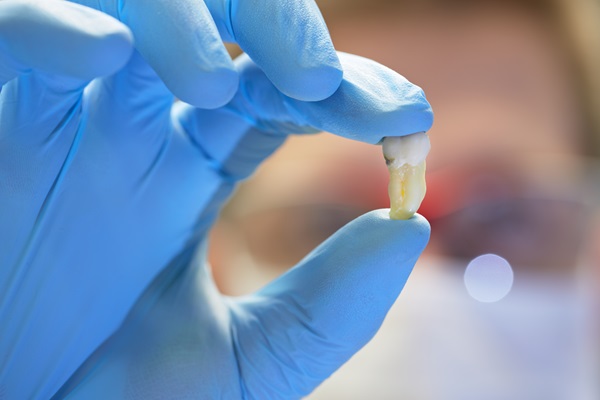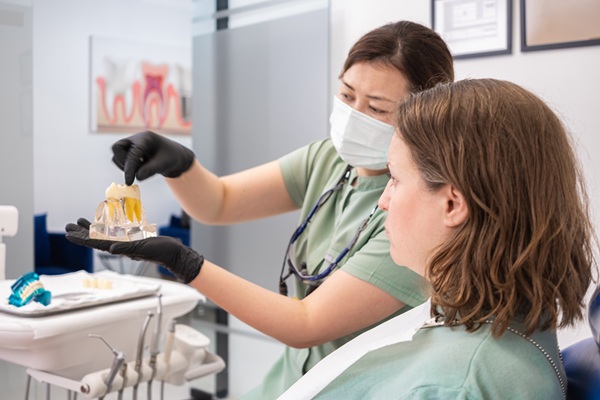What To Know When Getting a Tooth Extraction
It may be frightening and nerve-wracking to be faced with the prospect of tooth . Read on to learn more about this procedure. Unknown to many, tooth extraction is a common dental procedure, and knowing the process involved can help ease one's fear.
The need for tooth extraction
A filling, crown, or other dental treatment is typically used to restore teeth that have been fractured or damaged. However, if the damage is too severe to be repaired, a dentist may suggest extracting the tooth. Other reasons for a tooth extraction include:
- Decay or infection that has affected the tooth's core and roots
- Injury or trauma
- Overcrowding
- Preliminary procedure for orthodontic treatment
- Baby teeth that fail to come out when due
- Problems with wisdom teeth
Preparing for a tooth extraction
Before tooth extraction, the dentist will go over the patient's medical and dental history and take the necessary x-rays. The x-ray will show the length, form, and location of the tooth and surrounding bone. The dentist may use this information to decide the tooth extraction method, which can be either simple or surgical.
The dentist will administer a local anesthetic to numb the tooth's region before proceeding with the extraction. The dentist may also use intravenous (IV) anesthesia, which may vary from conscious sedation to general anesthetic, during a more complex extraction, known as a surgical tooth extraction. In this situation, patients need to make arrangements for transport home after the operation and have someone watch them until the effects of the anesthetic have worn off.
The tooth extraction process
A simple extraction is done when the tooth is above the gum and visible. The dentist will numb the tooth and gum tissue and loosen it using an elevator before extracting it with dental forceps.
A surgical extraction is a more complicated procedure for removing a tooth that breaks at the gum line or has not yet erupted. The dental professional will make a tiny incision on the gum and remove the underlying tooth during a surgical extraction.
Following the extraction
After tooth extraction, an essential thing to remember is to keep the area clean and free of infection. Following the treatment, the dentist will provide specific aftercare recommendations. Still, during the first 24 hours after the extraction, patients should avoid smoking, aggressively rinsing the mouth, or brushing around the extraction area.
Some pain and discomfort may occur after the procedure. In certain instances, the dentist may suggest or prescribe a pain reliever. Applying an ice pack to the cheek may help to decrease swelling. Limit vigorous exercise, stay away from hot drinks, and do not drink via a straw. Normally, discomfort should subside within three days to two weeks. If you have persistent or severe pain, swelling, bleeding, or a fever, contact your dental professional at once.
The bottom line
Whether you have undergone the procedure before or this is your first time, the best way to ensure a successful and pain-free operation is to carefully follow your dentist's instructions before and after the procedure. Tooth extraction can help you maintain a healthy, confident smile.
Request an appointment here: https://dentistofmontville.com or call Montville Smiles at (973) 302-2079 for an appointment in our Montville office.
Check out what others are saying about our dental services on Yelp: .
Recent Posts
If you need to schedule a wisdom teeth extraction, you likely have numerous questions about the procedure and what it entails. We encourage you to schedule a consultation with us to go over the details in person.In the meantime, here is an FAQ with questions that we hear on a regular basis.Most people have a…
If you are missing teeth, it can be both a cosmetic annoyance and a health issue. Luckily, your dentist can treat this issue and help you regain a beautiful smile. There are various effective solutions you can choose from. Your dentist can discuss the benefits and drawbacks of each of these so you can make…
Oral injuries that lead to severe bleeding in the mouth count as dental emergencies. Blood clots have a more challenging time forming in the mouth, and deep cuts in the mouth can lead to significant blood loss without the care of an emergency dentist. Waiting up to a few weeks for a regular appointment is…
An emergency dentist can provide the treatment that you need when you find yourself dealing with a loose tooth. A loose tooth is just one step away from falling out of its socket, so it requires emergency dental care.Lost adult teeth that fall out need to be quickly replaced to avoid issues that often come…


